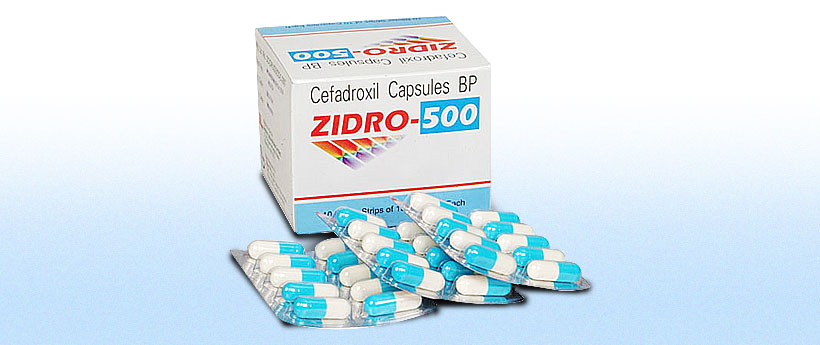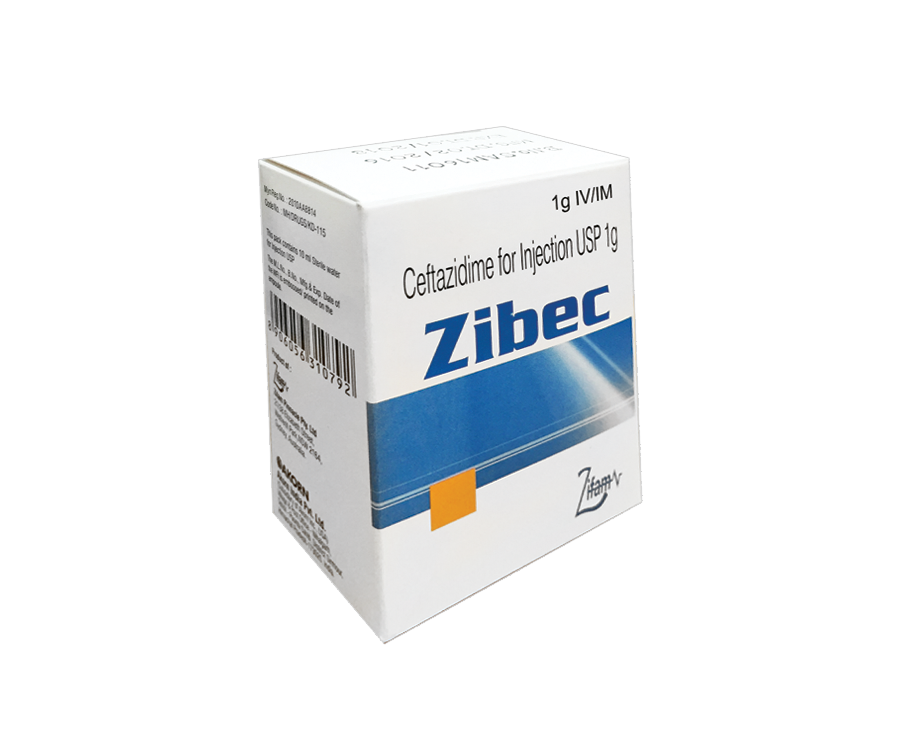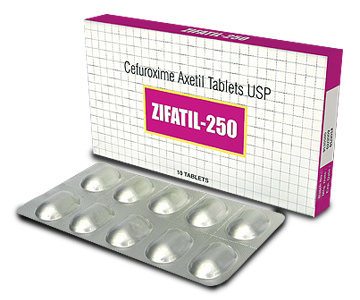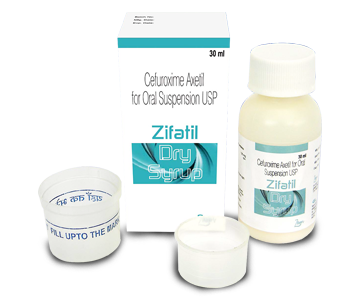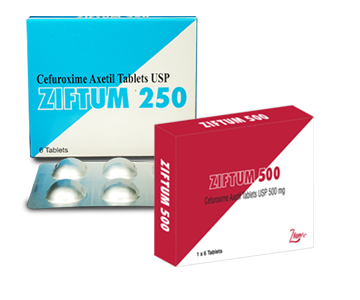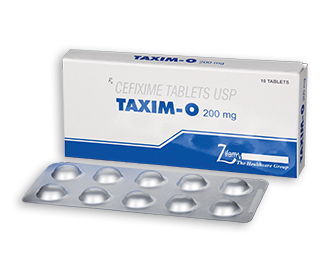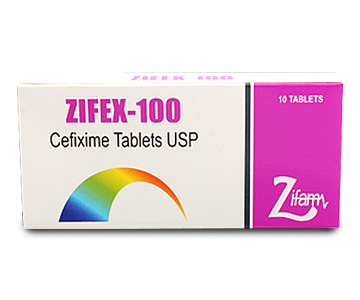Zidro
- ENG
- မြန်မာ
PRESENTATION
500mg capsules x 10’s
DESCRIPTION
ZIDRO (cefadroxil monohydrate, USP) is a semisynthetic cephalosporin antibiotic intended for oral administration. It is a white to yellowish-white crystalline powder. It is soluble in water and it is acid-stable. It is chemically designated as 5-Thia-1-azabicyclo[4.2.0]oct-2-ene-2-carboxylic acid, 7-[[amino(4-hydroxy-phenyl)acetyl] amino]-3-methyl-8-oxo-, monohydrate, [6R-[6(alpha),7(beta)(R*)]]-. It has the formula C 16 H 17 N 3 O 5 S•H 2 O and the molecular weight of 381.40
INDICATIONS AND USAGE
ZIDRO (cefadroxil monohydrate, USP) is indicated for the treatment of patients with infection caused by susceptible strains of the designated organisms in the following diseases:
CONTRAINDICATIONS
ZIDRO (cefadroxil monohydrate, USP) is contraindicated in patients with known allergy to the cephalosporin group of antibiotics.
Drug Interactions
Positive direct Coombs’ tests have been reported during treatment with the cephalosporin antibiotics. In hematologic studies or in transfusion cross-matching procedures
Use in pregnancy and lactation
Pregnancy: Pregnancy Category B: Reproduction studies have been performed in mice and rats at doses up to 11 times the human dose and have revealed no evidence of impaired
Nursing Mothers: Caution should be exercised when cefadroxil monohydrate is administered to a nursing mother.
ADVERSE REACTIONS
Gastrointestinal
Dyspepsia, nausea and vomiting, Diarrhea. Onset of pseudomembranous colitis symptoms may occur during or after antibiotic treatment.
Hypersensitivity
Allergies (in the form of rash, urticaria, angioedema, and pruritis) have been observed. These reactions usually subsided upon discontinuation of the drug. Anaphylaxis has also been reported.
Other
Other reactions have included hepatic dysfunction including cholestasis and elevations in serum transaminase, genital pruritus, genital moniliasis, vaginitis, moderate transient neutropenia, fever. Agranulocytosis, thrombocytopenia, idiosyncratic hepatic failure, erythema multiforme, Stevens-Johnson syndrome, serum sickness, and arthralgia have been rarely reported.
DOSAGE AND ADMINISTRATION
ZIDRO is acid-stable and may be administered orally without regard to meals. Administration with food may be helpful in diminishing potential gastrointestinal complaints occasionally associated with oral cephalosporin therapy.
Adults
Urinary Tract Infections: For uncomplicated lower urinary tract infections (i.e., cystitis) the usual dosage is 1 or 2 g per day in single (o.d.) or divided doses (b.i.d.).
For all other urinary tract infections the usual dosage is 2 g per day in divided doses (b.i.d.).
Skin and Skin Structure Infections: For skin and skin structure infections the usual dosage is 1 g per day in single (o.d.) or divided doses (b.i.d.).
Pharyngitis and Tonsillitis: Treatment of group A beta-hemolytic streptococcal pharyngitis and tonsillitis–1 g per day in single (o.d.) or divided doses (b.i.d.) for 10 days.
Children
For urinary tract infections, the recommended daily dosage for children is 30 mg/kg/day in divided doses every 12 hours. For pharyngitis, tonsillitis, and impetigo, the recommended daily dosage for children is 30 mg/kg/day in a single dose or in equally divided doses every 12 hours. For other skin and skin structure infections, the recommended daily dosage is 30 mg/kg/day in equally divided doses every 12 hours. In the treatment of beta-hemolytic streptococcal infections, a therapeutic dosage of ZIDRO should be administered for at least 10 days.






